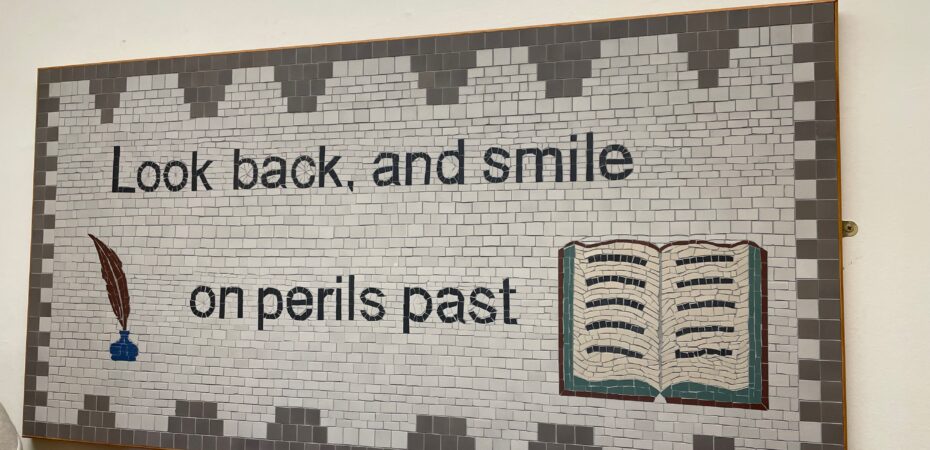This is another blog resurrected and refreshed from my old consultancy site. I’ve temporarily resurrected it but it won’t be around for long… This post is from November 2015 prompted by an event I ran at Glasgow University.
You know that moment when you walk away from someone at a conference feeling that you’ve made a bit of an arse of yourself and then realise with dazzling clarity what you SHOULD have said? This post is about that. Although written ten years ago, having just stepped off the merry-go-round of summer conferences, it spoke to me. Ten years on I’m both more comfortable in my own skin (so less angst-y about how I come across) which is just as well because the health issues I’ve had in recent years mean I tend to say whatever is in my head. Chemo ate my filters. If you’ve met me in the last 3 years you’ve probably noticed.
Throwback:
At a workshop today at Glasgow University, we were discussing reputation, profile and generally having greater personal impact. I asked everyone in the group to introduce themselves to their neighbour as if they were meeting at a conference. I didn’t give them time to prepare (although they had constructed a mind map of their profile/career/research vision earlier) but instead asked them to say the first things that came to them. After a few minutes we stopped and then reflected on what they said, what they should have said, what they definitely should NOT have said and generally what would be different if they could press rewind.
Here is the summary of the discussions. I’m posting these because they make up a useful checklist that might help you to prepare for a future introductory conversation. As you read each item on the list, think “How will I do that next time I introduce myself to someone new?”
– I should have brought the conversation around to wanting to keep in touch and asking for their contact details
– I should have talked a bit less about myself and instead asked questions which would have helped us find the common ground between us
– I should have talked more about the impact my work has on the public
– I should have worked out what to say in two minutes so I didn’t miss anything key
– I shouldn’t have asked for a job (it was clumsy and felt awkward)
– I should have been more explicitly about what I wanted and why I was talking to them (I.e. I SHOULD have asked for a job)
– I should accept that sometimes “big names” just aren’t interested in early career researchers (I’d argue that they probably would be if they could see why you were interesting…)
– I should have created an opportunity for a conversation to start instead of giving a “mini-talk” that left the listener stunned into silence
– I should have found a way to be more interesting to the other person (by understanding what they were doing)
– I should have emphasised the novelty of what I do
– I should have had this conversation with a chaperone who would have helped me to talk about my highlights, novelty and made it clear to the other person why I was worth talking to
Much of this speaks for itself but a few final comments. The apparent discrepancy between “I shouldn’t have asked for a job” and “I should have been clear about what I wanted” isn’t as contradictory as it appears. It’s fine to approach someone and say that you are going to be available for opportunities soon and to ask their advice or whether there are likely to be any openings in their group/institution in the near future. It isn’t fine to have a conversation which appears to be about something else and then bluntly switches into “Gis a Job“. Think about the flow and how to set up the conversation so you feel comfortable asking about opportunities.
I also loved the final point about the chaperone. Sometimes it’s much easier to have someone there who will celebrate your successes. Who can do this for you in your network? Next time you are at a conference and someone suggests that you talk to a senior colleague, ask them if they would mind making the introduction. These introductions can be virtual as well as “in the room” so don’t be afraid to ask people in your network to build your connections (they may be grateful to have an excuse to make the contact and to do both you and the other person a favour!).
Happy networking!
(and the feature image comes from Abbotsford, home of Sir Walter Scott)


